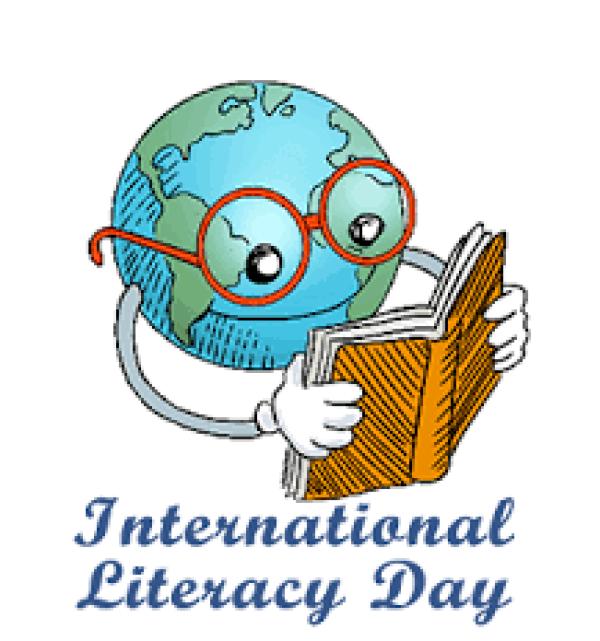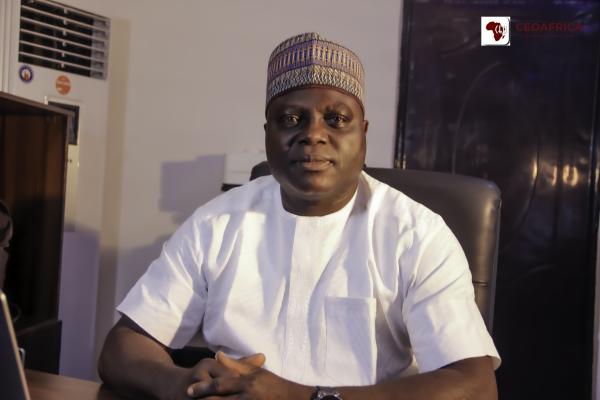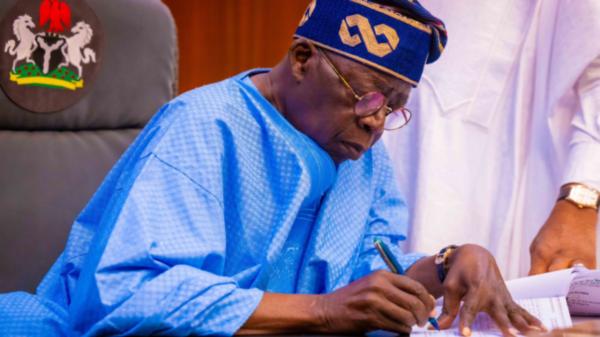
Today, Nigeria joins the Global Community in celebrating 2022 International Literacy Day (ILD). This celebration is aimed at drawing the attention of the various Countries to the importance of Literacy, not only as the only viable tool for Socio-Economic and Political development, but also as the most potent weapon for fighting poverty, ignorance, diseases, joblessness, oppression among others. This Year’s event is titled “Transforming Literacy Learning Spaces”.
This celebration could be traced to 26th October, 1966, when the United Nations Educational, Scientific and Cultural Organisation (UNESCO), declared September 8th as the International Literacy Day, at the 14th General Conference session. The first of its kind was celebrated in 1967, which became a reminder for humanity to take Literacy as a foundation for Human Rights and Dignity. Later in the year 2015, World Literacy day was also included under the UN’s programme for achieving its Sustainable Development Goals. Thus, the importance of Literacy in every sane society can never be over-emphasised.
The Literacy day is celebrated to promote human attention towards Literacy; it is also aimed at promoting social and human development. Literacy is a necessary tool to eradicate poverty, lower child mortality rate, control population growth as well as attain gender equality. It is correctly said that Literacy has the ability to raise the family status. Therefore, this day is celebrated to encourage people Globally, towards getting continuous education and understanding their responsibility for the family, society and the Country. In addition to fighting illiteracy, the goal of International Literacy Day is also to promote reading as a means of empowering both people and communities.
Today, Nigeria celebrates Transforming Literacy Learning Spaces: Exploring Opportunities and Possibilities' as this Year's theme for the International Literacy Day 2022. It further stated that this will be an “opportunity to rethink the fundamental importance of Literacy learning spaces to build resilience and ensure quality, equitable, and inclusive education for all. Meanwhile, this year’s literacy day is held in Abidjan, Cote d’Ivoire and will be joined virtually across the globe, according to UNESCO.
Literacy is one of the numerous elements that contribute to the development of a society or a person and gives people more freedom and independence to think for themselves. International Literacy Day is celebrated by individuals and organisations to inspire and assist others. Mentoring kids, donating books, and funding students are some examples of how we can support this special occasion.
According to available statistics, about one billion adults lack the most basic, minimum literacy skills all over the world. In other words, about one in every five adults in the world or 20 percent of the global population is trapped in the nether region of ignorance. Of this percentage, about 60% are women. Similarly, about 75 million of the world’s children are not in school or have dropped out before they finish.
As apt as the theme for this year’s commemoration is, coupled with the progress so far made, experts have noted that literacy challenges still persist, just as the demands for skills required for work evolve rapidly.
The Federal Government has admitted that Nigeria’s current illiteracy level stands currently at 31 percent. This was made known by the Minister of State for Education, Dr Goodluck Nanah Opiah, who spoke on behalf of the Federal Government on Tuesday, September 6th, 2022 at the occasion of the 2022 International Literacy Day Ministerial Press Briefing in Abuja.
According to him, “It is heartwarming to note that the current statistics of 2022, based on estimations, captured the non-literate population at about 31% of the estimated total population. This is a significant reduction from the hitherto statistics of 38% in 2015.”
Noting the education ministry’s commitment to literacy, he stated: “As you are all aware, the world has become complex with rapid scientific and technological advancements. Several things have changed, including what it means to be literate and this administration is sparing no effort in meeting up with the demands of the present times. The inclusion of Youth and Adult Literacy as a pillar in the Ministry’s Ministerial Strategic Plan (MSP) is a clear and resounding demonstration of the Government’s commitment to advancing literacy.”
He further noted that, “the government has ensured guaranteed additional access to adult and non-formal education programmes in 377 centres across the 36 states and FCT, empowerment of graduands of Basic Literacy and Vocational Programmes with skills and income generating equipment in three major trades of Fashion and Design, Home Economics (including Beauty and Cosmetology) and provided teaching and learning materials to all the 36 state agencies for Adult and Non-Formal Education, among others.”
Meanwhile, earlier, the Director-General, United Nations Educational, Scientific and Cultural Organisation (UNESCO), Audrey Azoulay, said the adult literacy rate in the world has increased from 68 per cent in 1979 to 86.7 per cent in 2020.Represented by UNESCO Regional Director for West Africa, Dimitri Sanga, MsAzoulay noted that 60 percent of illiterate adults are women.
She however noted that, “despite this progress, 771 million youth and adults around the world still do not possess basic literacy skills 60 percent of whom are girls and women.COVID-19 is exacerbating this issue. School closures and disruptions caused by the pandemic have likely driven learning losses and drop-outs. This is especially true for vulnerable populations.”
She said that UNESCO member states have renewed their commitment to literacy, this year, through the adoption of the Marrakech Framework for Action. The Marrakech Framework, she said, recognises adult learning and education as a core driver for all the SDG goals.
Speaking further, she added that a pre-summit hosted by UNESCO in June has paved the way for the Transforming Education Summit to be convened by the United Nations Secretary-General this September in New York.
“The Pre-Summit brought together more than 150 Education Ministers to reaffirm that tomorrow’s education must be inclusive and focused on the most vulnerable—giving them not only basic skills but also keys to navigate the contemporary world. The summit reaffirmed the importance of a new form of literacy, digital literacy, as an essential tool for lifelong learning.”
Sadly, it is not strange to an average Nigerian to say that Nigeria pays lip service to education at all levels. Education is one of the most neglected aspects of our socio-economic life, as many would say. The rampant strikes by teachers, lecturers and other education sectors paint the picture more vividly.
Most importantly, the latest news in the educational sector in Nigeria is the ongoing strike embarked upon by the Academic Staff Union of Universities, ASUU, which started on February 14, 2022. The union had on August 30th, 2022 declared a total and indefinite strike.
The strike is in protest against the government’s failure to release revitalisation funds for universities, failure to release the white paper report of the visitation panel to universities and the failure to deploy the University Transparency Accountability System for the payment of salaries and allowances of lecturers.
According to a statement by the union’s President, Prof. Emmanuel Osodeke, the union had experienced deceit of the highest level for over five years, he added that the government engaged ASUU in fruitless and unending negotiation without a display of fidelity.
The statement reads, “In view of the foregoing, and following extensive deliberations on government’s response to the resolution of February 14, 2022, so far, NEC concluded that the demands of the union had not been satisfactorily addressed. Consequently, NEC resolved to transmute the roll-over strike to a comprehensive, total and indefinite strike action beginning from 12.01am Monday, August 29, 2022.
“NEC acknowledges with appreciation past and current efforts by eminent Nigerians and groups to mediate in the lingering crisis. Our union remains open to reasonable engagements as we have always done.
“However, ASUU remains focused on the full implementation of the December 23, 2020 Memorandum of Action for quick restoration of industrial harmony in Nigeria’s public universities.”



















